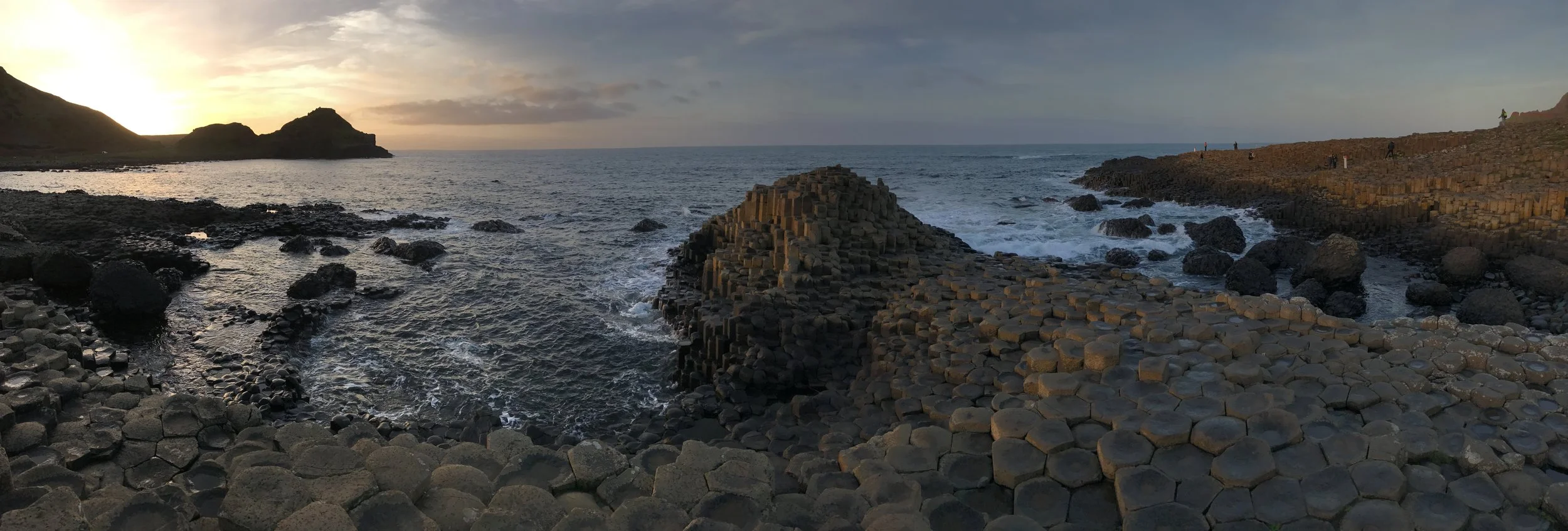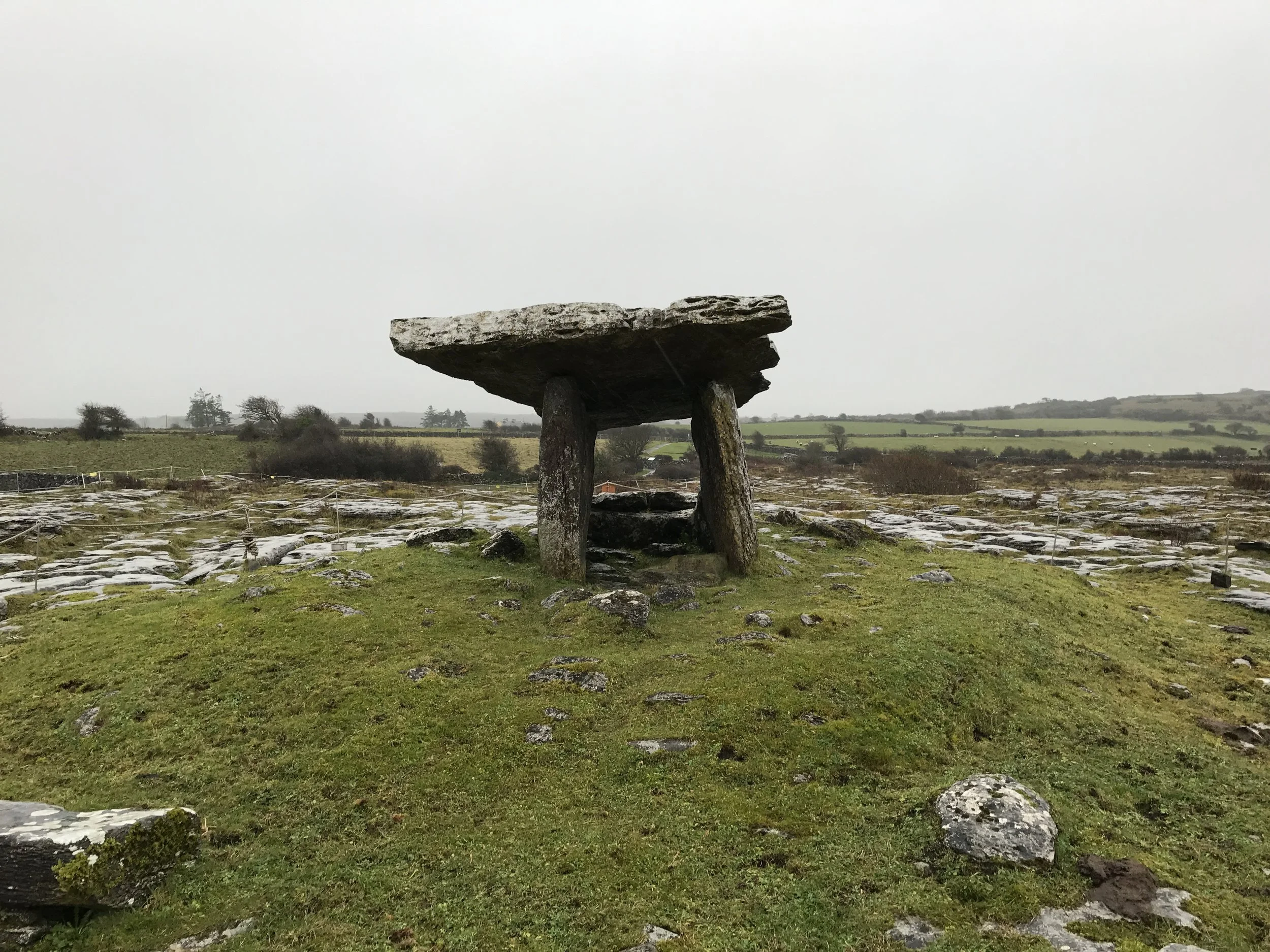One of the most magical things about Ireland is that no matter where one goes in the country, that area is guaranteed to have a local legend of some sort. From Saints, to Holy Wells, to ghosts, monsters, the Devil himself, sprites, fairies, leprechauns and more, the land is inhabited by magical creatures and secret portals to other magical realms. And, with many places of otherworldly scenery, even if you are a non-believer, it is easy to see how such myths, legends, and stories came about. Out of all of these places, however, there is only one spot where one can visit where two giants battled, or depending on the account, where one giant tricked another, and that is the Giant’s Causeway in Northern Ireland.
Poulnabrone Portal Tomb
With castles and looming nineteenth century manors, Ireland is well-known for its well-preserved parts of modern history. With much less fanfare, however, Ireland also has a number of well-preserved pieces of ancient history, such as Newgrange, and various portal tombs scattered around the island. While there are over one hundred and seventy portal tombs in Ireland in various states, none is more well-known, visited, and photographed than the Poulnabrone Portal Tomb. Before discussing the many unique features of Poulnabrone, it’s helpful to have a frame of reference as to what “Portal Tombs” or “Dolmens” were. While no one is entirely sure what portal tombs were constructed for, given the length of time that has passed – some five to six thousand years – they are classified as two standing stones standing parallel that are covered by a large top roof stone (known as a “capstone”). And, while no one knows exactly for sure, the “portal” aspect of the tomb was that of a gateway to the “Otherworld” – either keeping it out of our world, or for providing access between realms.
Cliffs of Moher
From the North to the South, and the East to the West, Ireland is a country with extraordinary natural beauty. While there are a plethora of sites and National Parks to choose from, the country’s top and most well-known natural feature is the Cliffs of Moher. With over one million visitors yearly, and in recent years, over 1.5 million visitors, the Cliffs of Moher are not just the top natural feature in Ireland, but one of the top overall tourist destinations overall, second only to other iconic Irish destinations like the Guinness Storehouse in Dublin, the Book of Kells, and the Giant’s Causeway (in Northern Ireland). One of the reasons the Cliffs of Moher are so iconic is because in modern times, they have been featured in all sorts of movies like Harry Potter; but the main reason that they are so popular is because they have been a tourist destination since the eighteenth century, and a historic spot for centuries before that.
St. Brigid's Well
One of the many interesting things about Ireland is that it is a place where the practices of the past and present intersect in modern day life. While there are many examples of the past in modern day Ireland, one of the tangible features that people can experience are the many holy wells that still dot Ireland’s countryside. During the nineteenth century, a survey was taken of the wells that were considered holy, and over 3,000 were considered to have some sort of interesting power. While this number has likely decreased over the course of time, and a subsequent survey has not been conducted, many of these holy wells remain, and are very accessible. One of the most well-known of these wells due to its location near the Cliffs of Moher is St. Brigid’s Well outside of Liscannor.





